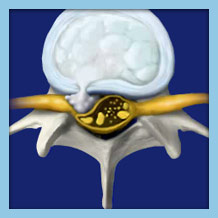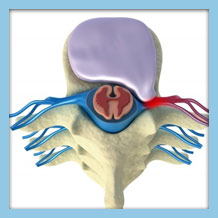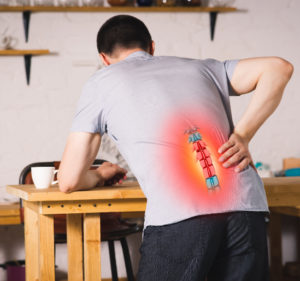

How Do I Know if I Have a Herniated Disc?
Symptoms of a herniated disc are usually nerve related and will be felt in the extremities, depending on where the herniated disc is located. Nerve-related symptoms from a ruptured disc in the lower back will be felt in the lower extremities, whereas symptoms of a slipped disc in the neck will be felt in the shoulders, arms, and hands.
Symptoms of a herniated disc usually include numbness, tingling, burning pain, and a loss in reflexes/flexibility. As your herniated disc worsens you will notice that your symptoms worsen as well.
Do you have any of these symptoms and think you may be suffering from a herniated disc? We have a quick and easy tool to help gather some information from you to help us determine what your problem is and get you on the road to recovery.
What is the Right Treatment for Me?
Herniated disc treatment will most often begin in a conservative measure, incorporating anti-inflammatory medications, ice and heat treatments, exercises, and sometimes physical therapy. Only once conservative treatments have been exhausted should surgery be considered.
OLSS provides a wide range of treatment options and because our spine doctors are the most experienced and best trained in treating herniated discs, we are able to perform many advanced treatments other practices are unable to offer.
The real question is: What treatment is best to treat your herniated disc? Use our Treatment Match tool to quickly get started in finding the right treatment for you.
What are the Common Causes of a Herniated Disk?
A herniated disk can occur when a person performs a physical activity that results in an excessive strain or injury. Below are the common causes of a herniated dics:
- Poor nutrition- nutrients are needed in order to keep a spine healthy.
- Genetics- a family who has a history of any spine diseases and conditions can develop the chances of getting herniated disc.
- Aging- the process of aging can cause the discs to degenerate and the ligaments that hold it in place can begin to weaken.
- Spine trauma- resulting from an injury of the spinal column. The injury can come from car accidents and sports.
- Overweight-can cause vertebrae in the spine to compress and turn the disc in between.

